All products featured are independently chosen by us. However, SoundGuys may receive a commission on orders placed through its retail links. See our ethics statement.
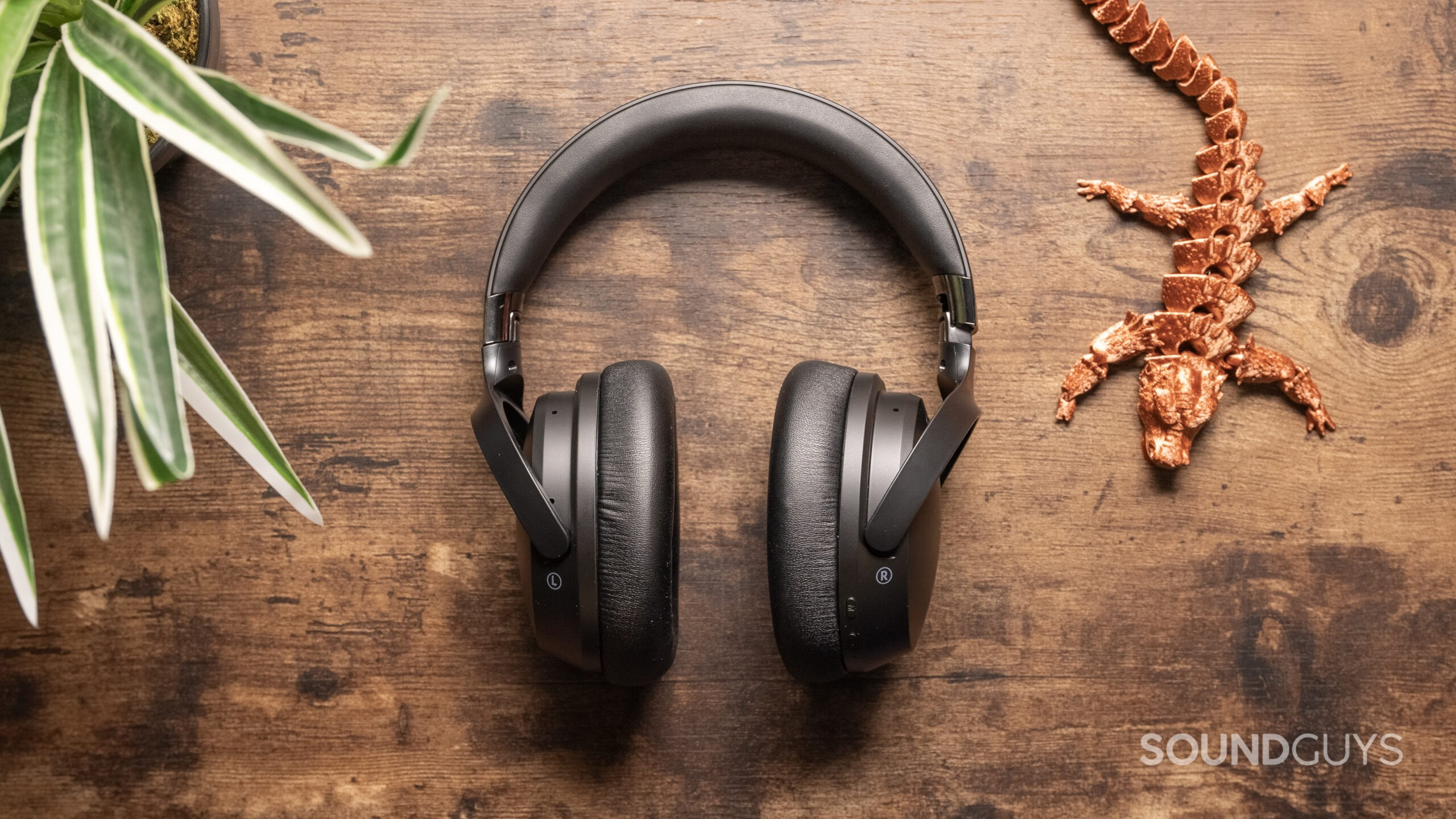
Monoprice Dual Driver Headphones review
Published onMay 9, 2024
Dual Driver Headphones
Monoprice has made a name for itself with a line of consumer audio products offering performance that punches well above their budget pricing. In this review, we’re checking out the catchily-named Monoprice Dual Driver Headphones with Active Noise Cancelling to see how they stack up with other budget-friendly options. Read on to find out if they deliver.
Editor’s note: this is the first version of the article. Updates will follow as the market changes.
The Monoprice Dual Driver Headphones are an option for those looking for entry-level wireless, over-ear ANC headphones, though we strongly suggest you shop around.
What’s it like to use Monoprice Dual Driver Headphones?
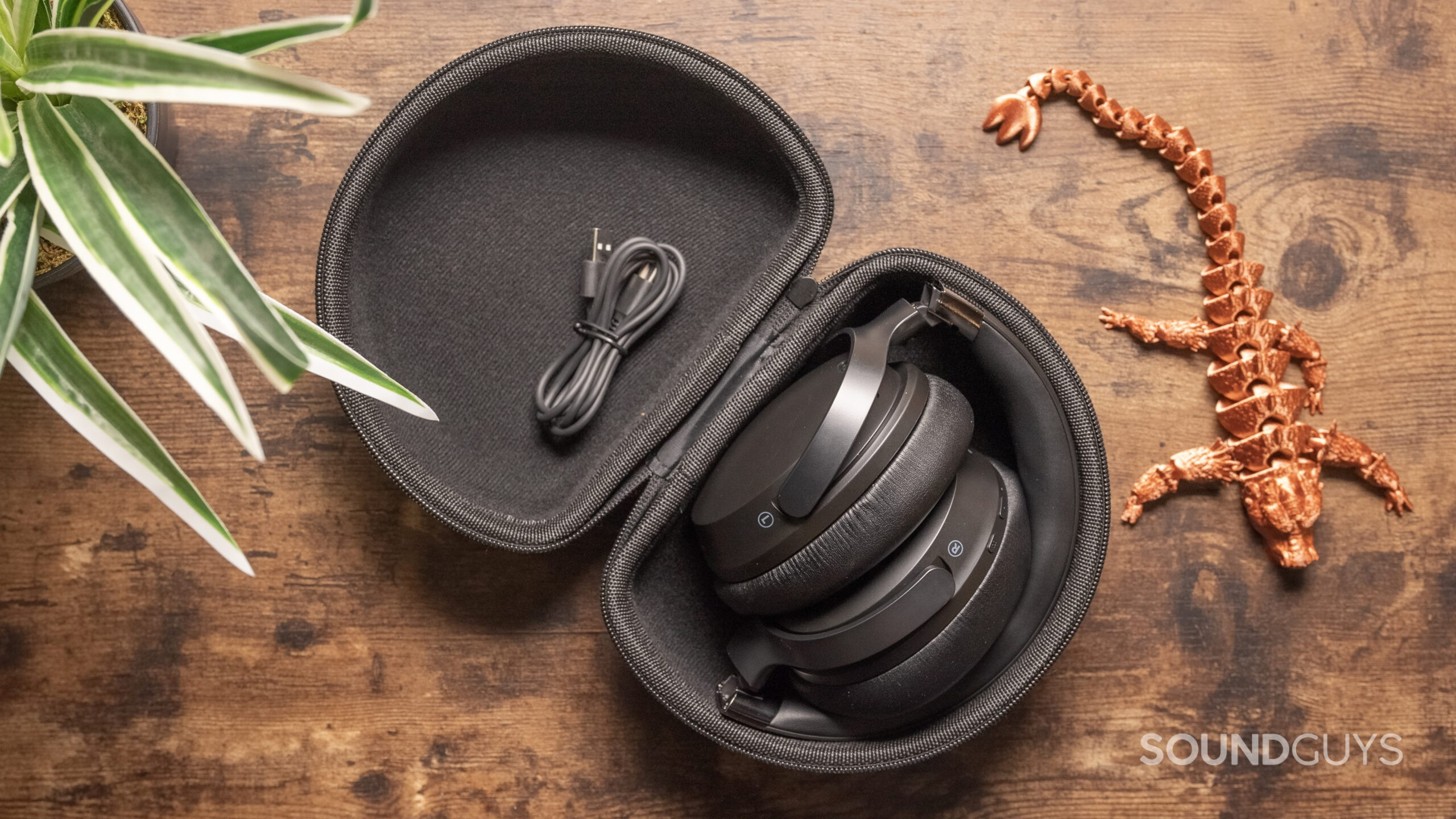
The headphones’ build is plasticky, though they are pretty comfortable with good fitting appropriately sized ear cups, and resemble black, generic closed-back, wireless headphones. The functions of the two buttons on the right ear cup aren’t evident from the tiny molded identifiers; the buttons are clicky and cheap-sounding. There are (at least) three disembodied female voices living inside the headset: one that announces power on, off, and pairing mode (British accent), another that announces the battery level, noise canceling, and transparency (US accent), and another that says “normal” indicating that neither ANC nor transparency modes are active.
How do you control the Monoprice Dual Driver Headphones?
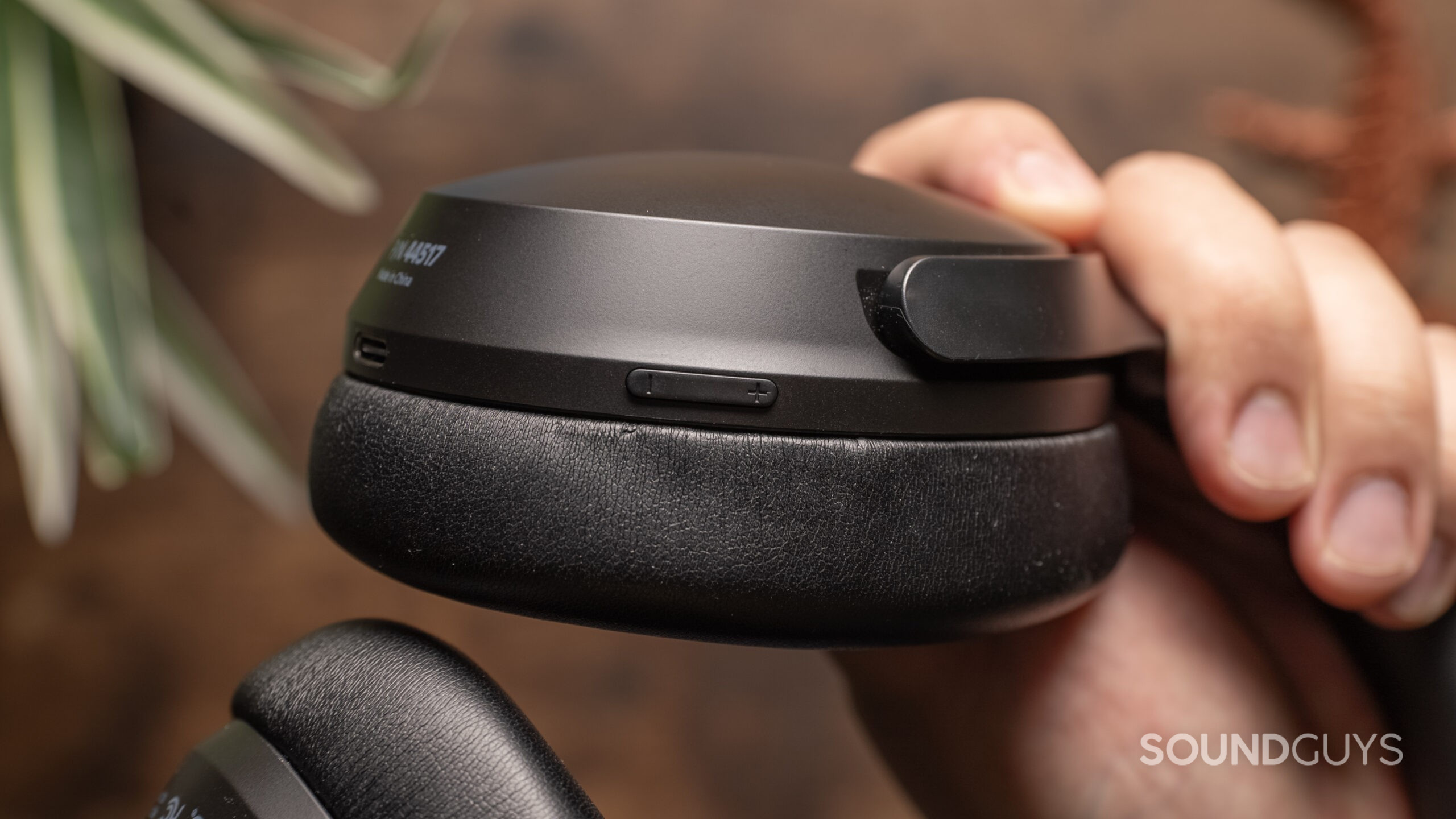
There’s no app to control the Monoprice Dual Driver Headphones; it is controlled entirely using the two buttons on the right ear cup, along with the volume control. The button that is labeled with a dot controls the power and is identified in the manual as the “MF” (multifunction button), whereas, confusingly, the button with a molded “M” cycles through the three ambient modes (noise canceling, normal, transparency).
How do the Monoprice Dual Driver Headphones connect?
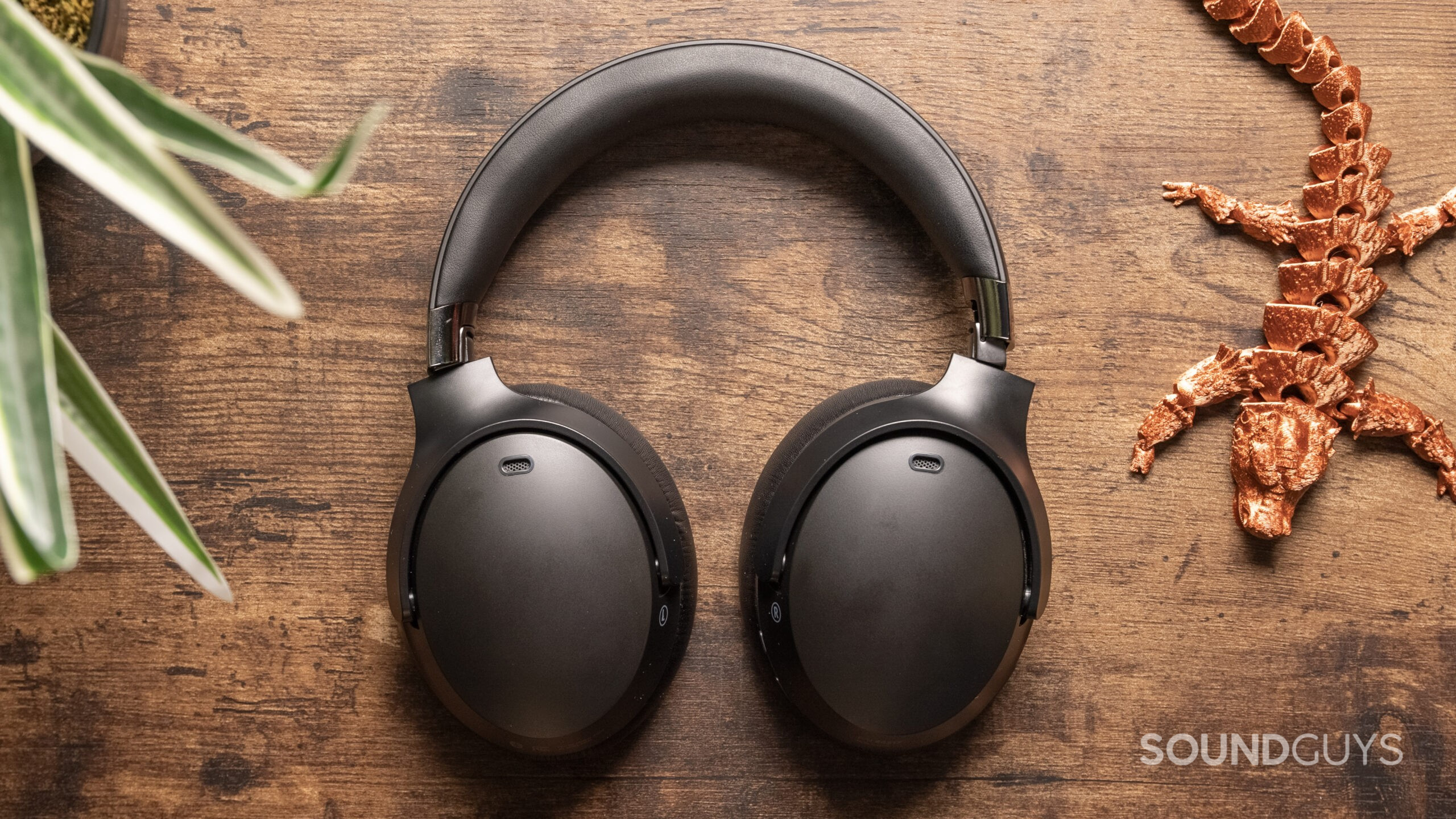
The Dual Driver Headphones with Active Noise Cancelling shows up in your BT pairing list as MP44517. They use Bluetooth 5.0 with no advanced codecs, and there’s no option to use them wired.
Pairing multiple devices:
1. Turn off the headset after connecting to the first device.
2. While turned off, press and hold the “MF button” for 5 seconds until a blue LED light flashes quickly.
3. In the second device’s Bluetooth pairing devices, search and select “MP44517”.
4. Reconnect with the first device by selecting “MP44517” in its pairing device to connect to both simultaneously.
How long does the battery of the Monoprice Dual Driver Headphones last?
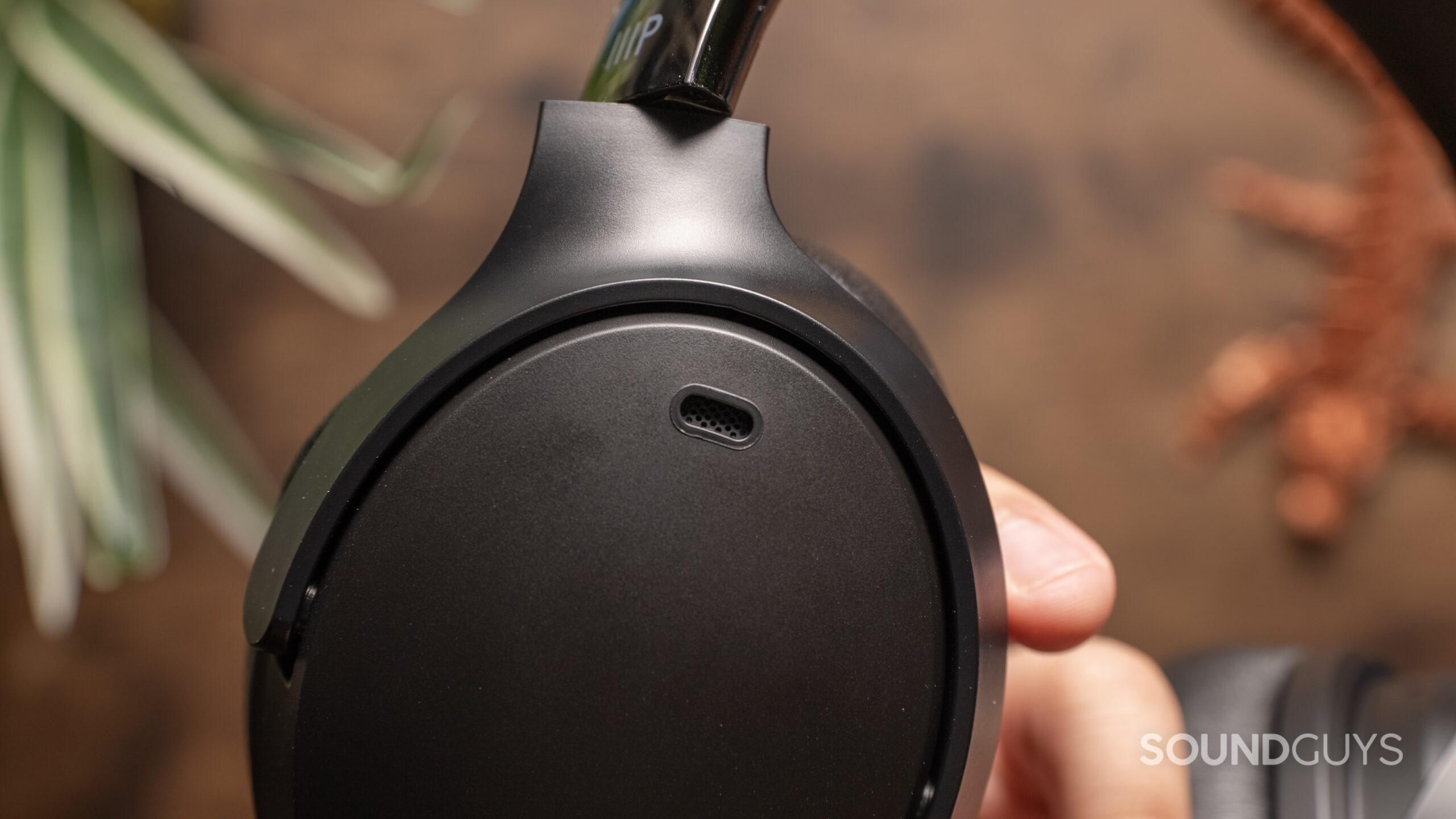
In our standard test, the battery of the Monoprice Dual Driver Headphones lasted 93 hours and 1 minute. That means you won’t need to charge them for 11 days if you listen for 8 hours daily. That’s pretty good and significantly more than the 70 hours quoted by Monoprice.
There’s no mention of fast charging in the product documentation.
How well do the Monoprice Dual Driver Headphones cancel noise?
Loading chart ...
The chart above shows how the headphones’ noise-blocking abilities were measured in our lab. As expected, passive isolation is most effective at blocking external noise in the higher frequencies above 1kHz. Active noise canceling works best at canceling out low-frequency noise below 1kHz. ANC performance is good, with around 25dB of noise attenuation between 100 and 200Hz, helping eliminate engine rumbles and street noise.
How do the Monoprice Dual Driver Headphones sound?
The Monoprice Dual Driver Headphones sound distinctly lo-fi, or “dull,” lifeless, lacking treble — nobody will buy these for their sound quality.
Multi-Dimensional Audio Quality Scores (MDAQS)
The chart below shows how the sound of the Monoprice Dual Driver Headphones was assessed by the Multi-Dimensional Audio Quality Score (MDAQS) algorithm from HEAD acoustics.
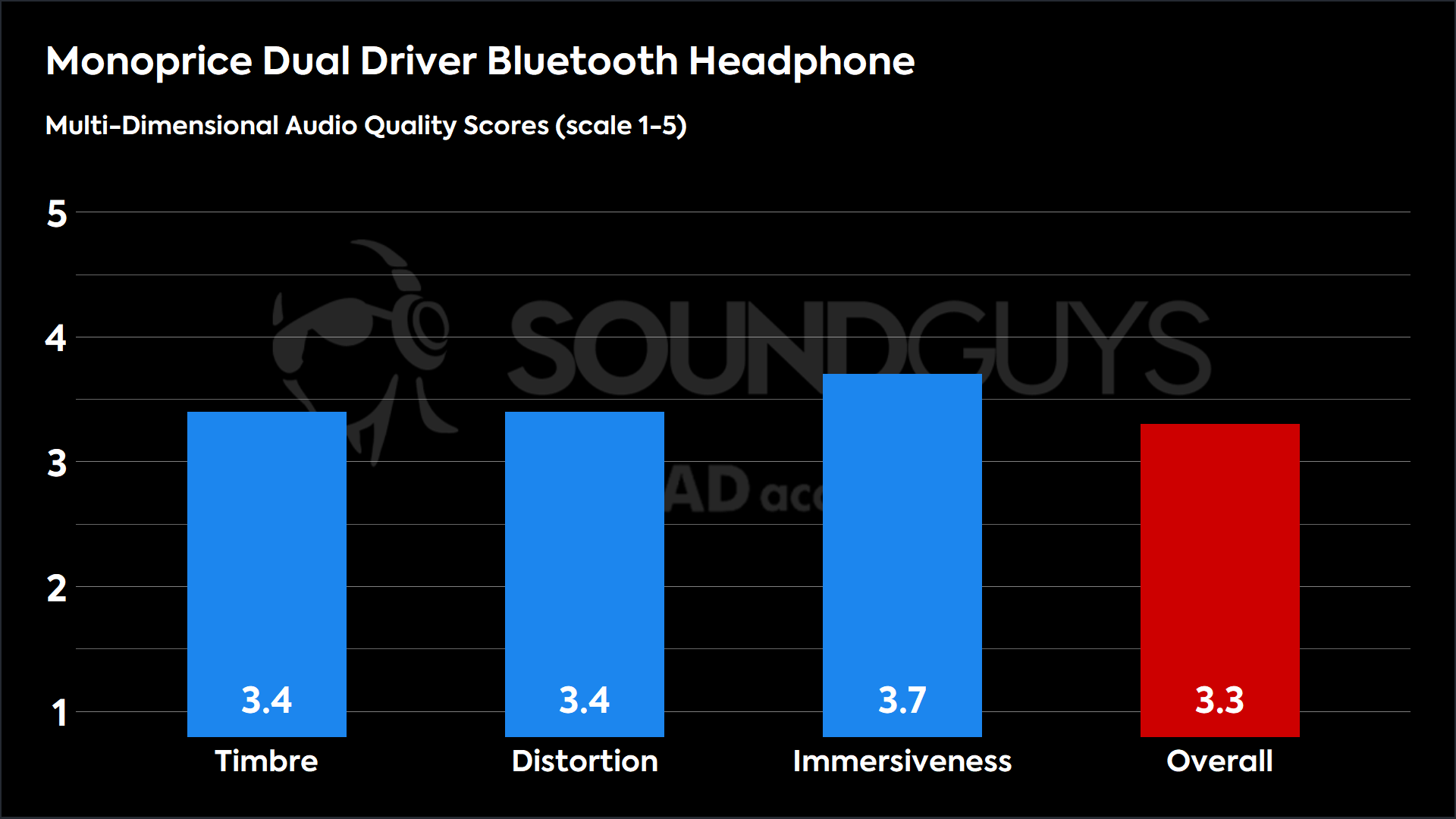
The Monoprice Dual Driver Headphones’ sound does not rate highly in any category, with an unimpressive overall score of 3.3. Though no score is genuinely terrible, none of the posted Mean Opinion Scores are all that good, either.
Timbre (MOS-T) represents how faithfully the headphones reproduce the frequency spectrum and temporal resolution (timing information).
Distortion (MOS-D) represents non-linearities and added noise: higher scores mean cleaner reproduction.
Immersiveness (MOS-I) represents perceived source width and positioning: how well virtual sound sources are defined in three-dimensional space.
See here for an explanation of MDAQS, how it works, and how it was developed.
Reviewer’s notes
Editor’s note: this review uses a hover-enabled glossary to describe sound quality based on a consensus vocabulary. You can read about it here.
Objective Measurements
A frequency response like this is inexcusable in a headphone with onboard DSP.
Loading chart ...
The frequency response chart above shows how the measured performance of the Monoprice Dual Driver Headphones compares with our preferred headphone response curve. It’s clear that the headphones’ response is quite far from “good,” which explains a lot about why they sound so terrible.
Loading chart ...
The above measurement shows that the frequency response changes when ANC is off. There are significant changes in the bass and midrange characteristics, but nothing that improves the sound, unfortunately.
Can you use the Monoprice Dual Driver Headphones for phone calls?
You can use the Monoprice Dual Driver Headphones for voice calls. Check out how the microphone sounds in our standardized samples below.
Monoprice Dual Driver Headphones microphone demo (Ideal conditions):
How does the microphone sound to you?
Monoprice Dual Driver Headphones microphone demo (Office conditions):
Monoprice Dual Driver Headphones microphone demo (Street conditions):
Monoprice Dual Driver Headphones microphone demo (Windy conditions):
Monoprice Dual Driver Headphones microphone demo (Reverberant space):
Even in ideal conditions, the microphone sounds a little distorted, and it does a poor job of isolating speech from background noises in our “real world” samples.
Should you buy the Monoprice Dual Driver Headphones?
This is a clear example of a poorly implemented product that is best avoided. So many other low-cost wireless ANC headphones perform much better that we cannot recommend this product, even if they’re heavily discounted.

What should you get instead of the Monoprice Dual Driver Headphones?
One of the best-performing ANC headphones we’ve found for well under $100 is the Edifier W820NB Plus $69.99 at Amazon, which has a comfortable fit, decent sound, and plenty of features to offer the casual listener on a budget. The only downside for commuters and travelers is the lack of foldable design.
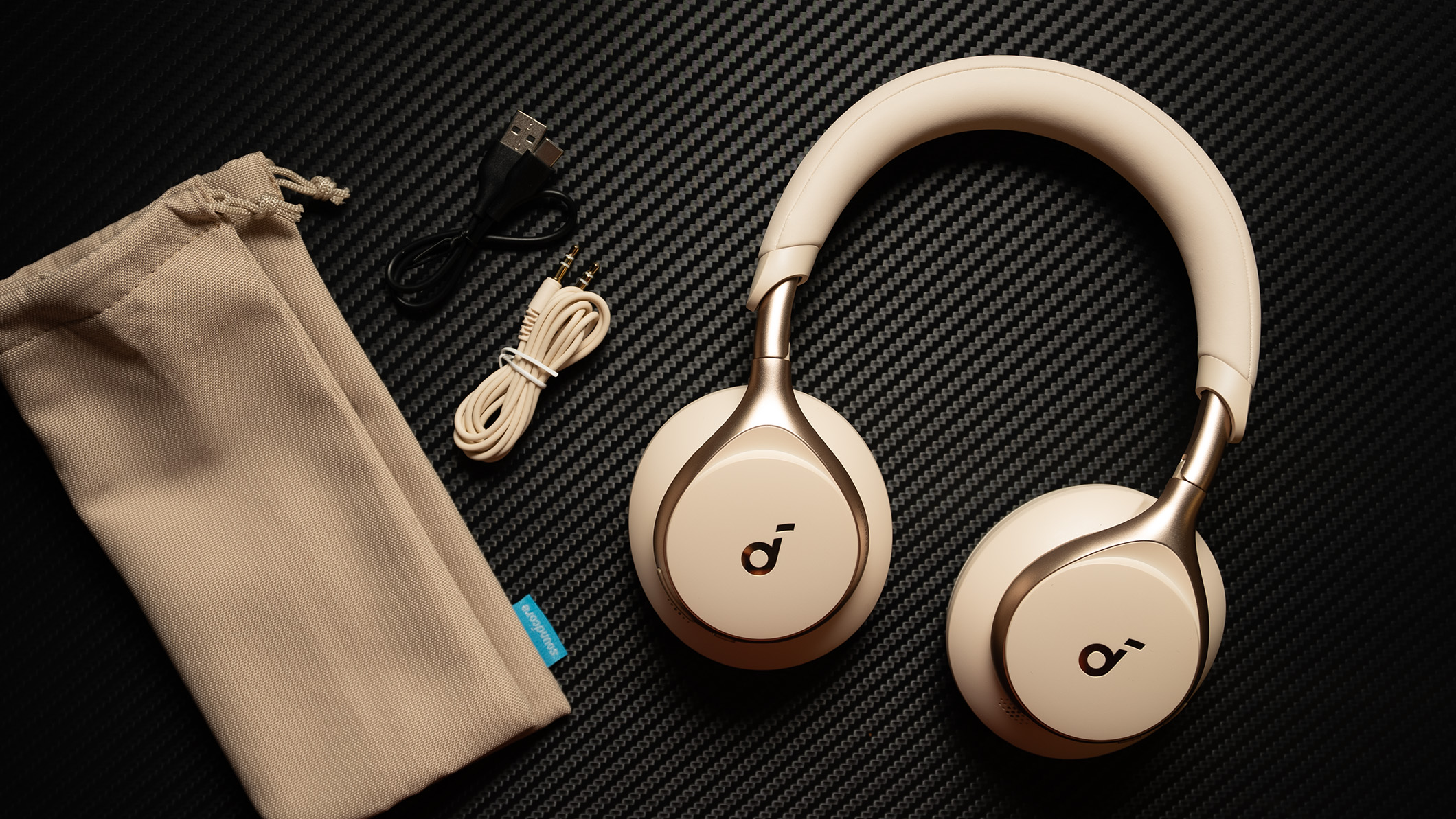
The Anker Soundcore Space One cost $99.99 at Amazon and look and feel like they’re worth a lot more, bringing many of the same features of flagship competitors for a fraction of the price.
Also worthy of serious consideration are the JLab JBuds Lux ANC $79.99 at Amazon, one of the best inexpensive ANC headphones of 2024. They focus on the fundamentals, not fighting the spec wars, and offer incredible value.
Frequently asked questions
No they are not waterproof.
These are not a good choice for working out. Here are some models we recommend instead.
Yes, you can hear how it sounds in the section above.
Yes, these will pair with any Bluetooth source device.